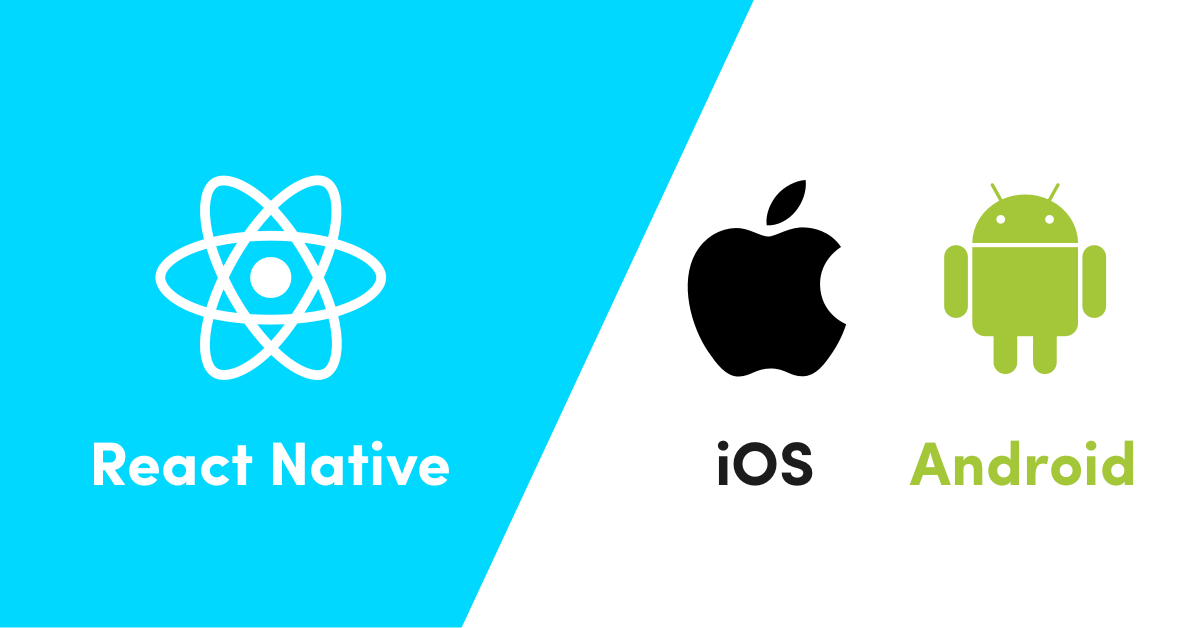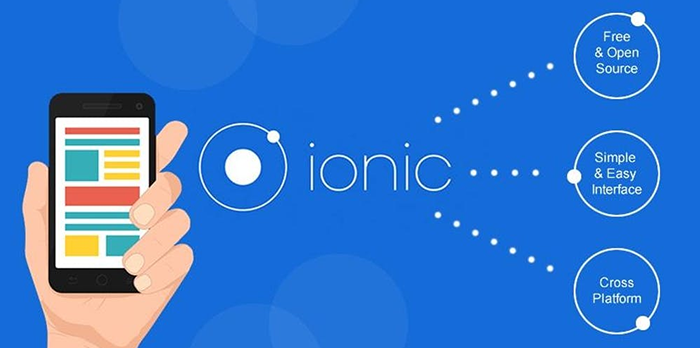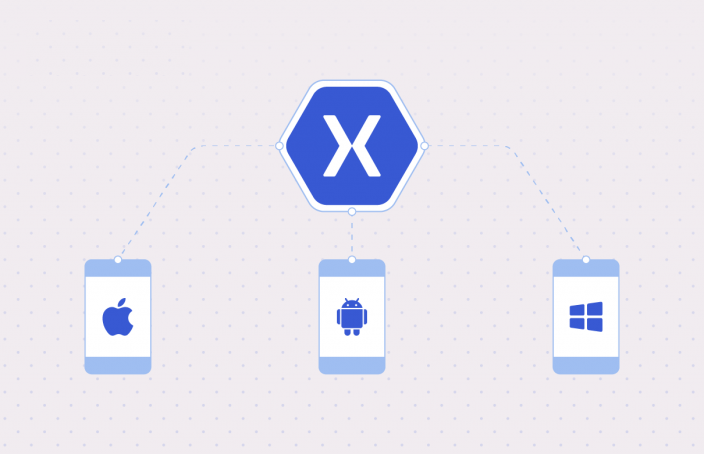When we talk about cross platform app development, the initial challenge is finding the right tools for you and your mobile app. With the growing significance of mobile app development, developers are trying to find innovative tools that can make their lives easier and development faster.
Whether you’re a pro or beginner developer looking for development tools, here are some tools to help you.
So, before you start developing your cross-platform mobile app, have you wondered where the debate between Android vs. iOS stands currently?
Let’s have a look at some stats.
Android smartphones hold 87% of the market share, while iOS holds the remaining 13% of the smartphone market share.
Now, by this logic, it means you’re bound to attract more traffic from Android users; however, you need to hold that thought and have a look at this.
According to Statista, Android apps generated 10.3 billion U.S. dollars worldwide, while iOS apps were responsible for generating 19 billion U.S. dollars in revenue.
In a nutshell…
It’s safe to say that both the operating system has different niches and lead the market in their own way. So, if you’re a small startup or a large enterprise, a native app can prove to be very expensive; hence, your best bet is to invest in cross platform app development services.
What Is A Hybrid App?
Essentially, a hybrid app is a mobile app that runs on different operating systems. Developers choose to build a hybrid app because it decreases development time by half.
For example, if a brand launches a hybrid Android mobile app and then later decides to expand to the iOS market – the process will be fairly simple. The developers will only need to copy the Android app codebase and use it for iOS or even Windows with minor tweaks.
It means you only need a one-time mobile app development process for any platform you decide to target. Anytime, any day. Sounds cool, right?
There are numerous famous apps built as hybrid apps. Some of these famous apps are:
And these are just a handful of apps that are high-performing hybrid apps.
Native vs. Hybrid Mobile App Development
The very basic difference between native and hybrid mobile app development is the entire development process.
Unlike hybrid or cross platform app development, native app development requires a developer to build different versions of the same app when needed.
However, this doesn’t make native apps an enemy. If hybrid apps can be developed faster, native apps run faster and much more smoothly.
So, in the end, it depends on your budget, timeline, and needs. Native app development is expensive but more fruitful than a hybrid app.
The Top Five Tools For Cross-Platform App Development in 2021
You can pick from a variety of tools, but it’s important to know which ones are the best but first, look at what you should be expected from the chosen tool.
Here are the parameters the tools should meet:
Now, let’s get to the topic at hand. What are the best tools to create a hybrid app in 2021?
1. React Native
React Native is the most famous framework for building hybrid apps. Because it’s based on JavaScript, the tool is best used to build enterprise-level apps. The framework was launched by Facebook in early 2015 and has become a developer-favorite in the last couple of years.
React Native also allows developers to use famous programming languages like C++, Objective-C, Python, and Java for mobile app development. Apart from development, developers enjoy using the framework because it’s open-source and has a very strong community.
Why Choose React Native?
- It’s a high-powered and native code-rendered framework.
- The code reusability cuts down the costs in half.
- There is a huge React Native community that is very helpful.
- The app development cycle is short.
- It offers a live reload feature, which allows developers to view changes as they make them.
- It supports node.js.
- It offers a large variety of plugins.
Why Shy Away From React Native?
- If your app has multiple UI transitions or various screens, it can be hard to work with React Native.
- The custom module library is limited.
- It has limited native features, and if you need any, you’ll need to know how to code.
- The learning curve is steep.
- You’ll need a team of developers who know React Native by heart.
- Some navigation controls can be tricky to implement.
2. Flutter
Flutter is an advanced UI kit, a hybrid framework launched by Google in 2018, and it’s the best out there to build web apps. The framework is a complete software development kit (SDK), meaning it offers every tool you need to develop a web or mobile app.
Because Flutter is Google’s baby, it’s most definitely set to become bigger and better in the near future, which is why it’s a great tool in 2021.
Why Choose Flutter?
- It comes with a wider range of UI elements.
- It has a high-performing rendering engine that allows developers to add animations.
- The framework is super-fast and responsive.
- It offers CLI and VI editors to developers.
- The hot reload feature is great for viewing live changes.
Why Shy Away From Flutter?
- Flutter uses Dart, which is a new programming language.
- It doesn’t support all the features.
- A Flutter app is 40% larger than a native mobile app.
3. Ionic
Although Ionic is a cross-platform app development framework, developers also prefer it for building native mobile apps and progressive web apps. When Ionic was first developed, it was used for building Angular apps to challenge the JQuery apps famous back then.
Now, Ionic offers a variety of modern web development technologies and techniques like CSS, HTML5, Sass, etc., which allows easy distribution of mobile apps.
Why Choose Ionic?
- It has the richest collection of powerful features for mobile app development.
- The framework supports Angular, which eliminates the need for learning a new programming language.
- Ionic can ship numerous UI components and elements.
- It also offers a live reload feature to analyze the app changes.
- It has a built-in development server that offers a different set of features.
- It comes with debugging tools that allow developers to removes any bugs and errors.
- The command-line interface (Ionic CLI) helps in streamlining the SDLC of apps based on TypeScript and Node.js.
- It’s backed by a helpful, big developer community, like React Native.
Why Shy Away From Ionic?
- It has live reloading but doesn’t offer hot reload.
- It doesn’t allow you to build a heavy-duty mobile app.
- The Cordova-based features don’t support all plugins.
- Developers have to depend on plugins for most features.
4. Xamarin
Xamarin is a high-performing framework that allows developers to use up to 90% of the codebase for the major operating systems. The relatively new tool is based on the Microsoft technology stack and has the support of 1.4 million+ developers
The open-source platform is based on the .NET framework, and it was first launched in 2001. Later, the company was founded in 2011.
Why Choose Xamarin?
- The mobile apps offer a performance that’s close to a native mobile app because it has native APIs.
- Xamarin has a Test Cloud feature that tests the code automatically to check for code reusability.
- The framework allows developers to link with multiple native libraries.
- The changes and updates of the mobile app can be uploaded on the source file for quick maintenance.
- It offers a complete and comprehensive development toolset along with a built-in IDE.
Why Shy Away From Xamarin?
- It can delay the support from third-party tools for the latest version of operating systems.
- The limited access to open-source libraries eliminates most of the best features for a mobile app.
- The framework can prove costly for enterprises if they have to buy the license for Visual Studio.
- Xamarin mobile apps are significantly larger in size as compared to native apps.
In Conclusion
Although hybrid app development technology has evolved and become quite famous, one can’t deny the extensive benefits and exceptional features offered by a native mobile app. If anything, native apps are still a better option when the debate is between hybrid apps and native apps.
However, with time hybrid apps are catching up to the performance of level of native apps,so if you want to save extra investment and time, then a hybrid app is still a viable option for mobile app development.




